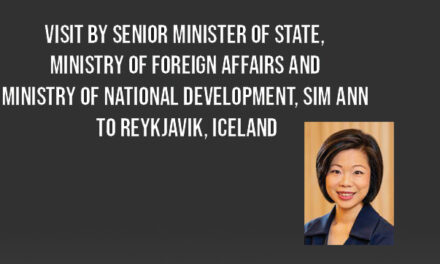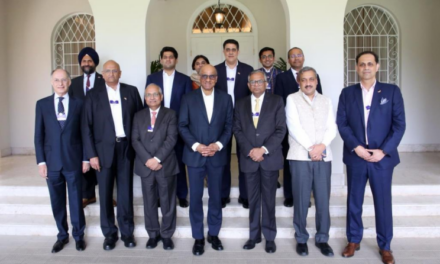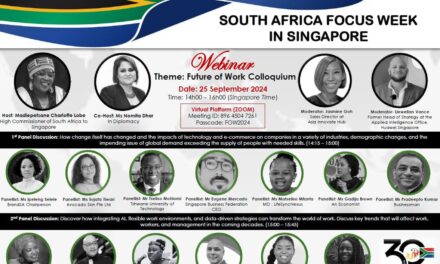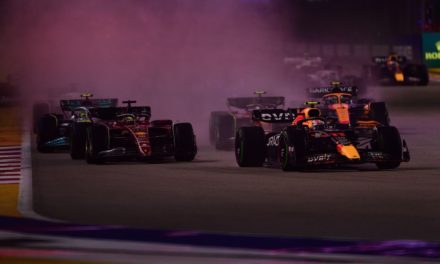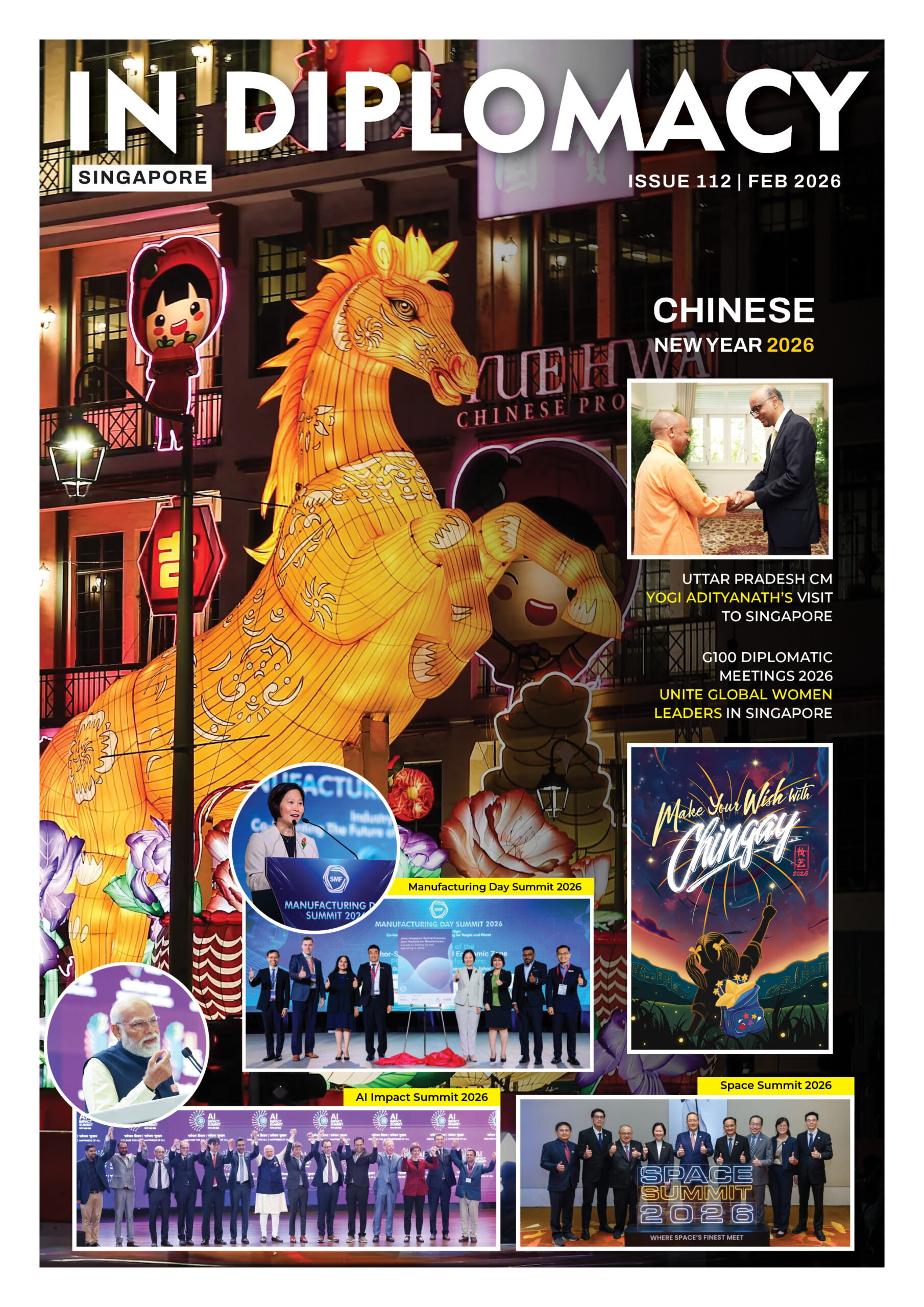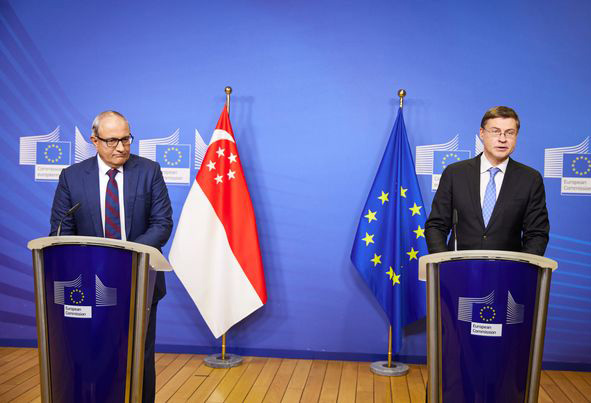
Minister S Iswaran highlighted benefits and opportunities in the wake of the Free Trade Agreement signed with the European Union especially in digital sector
THE inaugural EU-Singapore Free Trade Agreement Trade Committee was co-chaired in Brussels by Valdis Dombrovskis, Executive VP of the European Commission in charge of an Economy that works for People, and Commissioner for Trade, and Minister S. Iswaran, Singapore’s Minister for Transport and Minister-in-Charge of Trade Relations at the Ministry of Trade and Industry.
He was in Brussels on 8th December 2021 to also sign the Administrative Arrangement (AA) that will create a framework for more regular engagement between industry clusters including information exchanges, joint exploration of business opportunities, in areas such as manufacturing, medical technology, food, lifestyle and consumer products, as well as sustainable urban solutions. For the future of EU-Singapore cooperation Minister Iswaran believed there is much untapped potential is in the digital economy. The ASEAN digital economy is expanding at an exponential rate, and it is the fastest growing internet market in the world, with more than 125,000 new internet users every day. This will add an estimated US$1 trillion to regional GDP over the next 10 years.
Minister S. Iswaran said that the potential of digital economies is not being fully realised, because traditional trade rules and policies are less suited for the digital or digitally-enabled transactions of the 21st century. Thus, Singapore is pioneering a network of Digital Economy Agreements (DEAs), with like-minded international partners and has signed DEAs with Chile, New Zealand, Australia, and is in advanced discussions with the Republic of Korea (ROK). He said, “We are also in dialogue with other partners, including the EU and EU Member States, to explore various modalities of digital agreements and initiatives.
Following is the full text of his speech in Brussels:
Ladies and Gentlemen,
1. Good afternoon to our friends and colleagues here in Singapore, and good morning to those joining us virtually from Europe.
2. It is my pleasure to join you today to commemorate the first anniversary of the entry-into-force of the EU-Singapore Free Trade Agreement (EUSFTA). This is an important milestone and one worth celebrating for several reasons. The EUSFTA is a symbol of our excellent bilateral relations, which have endured and thrived for decades. It was and remains an important signal of our shared commitment to an open rules-based multilateral trading system. The EUSFTA is a high-quality agreement which has brought many tangible benefits to enterprises in both the EU and Singapore.
3. That our bilateral trade has held steady this year – despite the severe economic and health challenges posed by the COVID-19 pandemic – is also noteworthy, and the EUSFTA certainly helped to cushion the impact.
4. We, the EU and Singapore, are like-minded partners with many common interests. Our economies are deeply intertwined, anchored by substantive trade, investment and people-to-people ties. The EU is Singapore’s 4th largest trading partner for goods and 2nd largest trading partner for services. The EU is also Singapore’s largest foreign investor. Singapore, in turn, is the EU’s largest ASEAN trading partner and third-largest Asian investor. We host over 10,000 European companies, and many Europeans call Singapore their home, adding to the vibrancy of our cosmopolitan society.
The EU and Singapore must stay the course of free trade
5. Critically, the EU and Singapore have stayed the course of free trade, despite economic and geopolitical turbulence. Based on its forecast in October, the World Trade Organisation expects world merchandise trade to decline by 9.2% in 2020, due in large part to COVID-19. The merits of free trade and global integration are inevitably being called into question in some quarters and subject to populist pressure. Trade has become a politically fraught topic in many parts of the world, and there has been a revival of terms like decoupling and onshoring in the economic lexicon.
6. The EU and Singapore have resisted these pressures, stemming from a deep and mutual conviction that free trade underpins global peace and prosperity. Global economic connectivity is essential if we are to realise our full potential. Only by working together are we able to benefit from each other’s competitive advantages and create a whole that is greater than the sum of its parts. Of late, some have emphasised the need for fair trade; but this is neither a novel notion nor one on which there is any disagreement. Indeed, a rules-based and transparent multilateral trading system is the very foundation for fair trade. And, there is much more we can do and should press on with, to better secure our supply chains and make them more resilient.
7. Singapore is glad to have an abiding partner in the EU, and other like-minded nations, to resist nativist rhetoric and inward-looking policies. We must sustain a strong stance in favour of free trade and multilateralism at all major fora like the WTO, the G20, ASEAN, and APEC. The stakes are high, and we will certainly be worse off if the world fragments into economic blocs. Crucially, we must also make every effort to ensure that the gains from free trade are equitably distributed in our societies.
The EUSFTA provides certainty and predictability while opening doors to overseas markets
8. It is a fundamental tenet that our FTAs must benefit our businesses and create opportunities for our people. The EUSFTA is a prime example of a comprehensive and inclusive trade agreement. Its provisions are ambitious and wide-ranging. The EU and Singapore have undertaken some very substantive commitments in tariff elimination, rules of origin, and market access. There are also provisions on 21st century trade issues like Intellectual Property, Renewable Energy, and Sustainable Development.
9. But an FTA remains a mere document unless our enterprises are able to take advantage of its provisions. I therefore strongly urge our companies to study and fully utilise the agreement as a springboard to access new markets. The EUSFTA will provide certainty and predictability for companies, especially the smaller ones, as they navigate the current global economic slowdown and seek out new growth opportunities. We understand that a voluminous legal text, like the EUSFTA, can be difficult to navigate, especially for SMEs. That is why our agencies like Enterprise Singapore (ESG), as well as our business and trade association partners, have put in place various tools and initiatives to make the FTA more accessible for companies.
Looking ahead, the EU and Singapore can work to enhance our cooperation, especially in the digital economy
10. In that vein, the Administrative Arrangement that will be signed later this evening, will create a framework for more regular engagement between our industry clusters. The AA will facilitate information exchanges and joint exploration of business opportunities, in areas such as manufacturing, medical technology, food, lifestyle and consumer products, as well as sustainable urban solutions. These are growth areas that will tap on the complementary strengths of our companies.
11. Looking ahead, EU-Singapore cooperation must look to the future and explore new frontiers. One area where I believe there is much untapped potential is in the digital economy. The ASEAN digital economy is expanding at an exponential rate, and it is the fastest growing internet market in the world, with more than 125,000 new internet users every day. This will add an estimated US$1 trillion to regional GDP over the next ten years.
12. But the potential of our digital economies is not being fully realised, because traditional trade rules and policies are less suited for the digital or digitally-enabled transactions of the 21st century. Thus, Singapore is pioneering a network of Digital Economy Agreements, or DEAs, with like-minded international partners. These DEAs will facilitate seamless end-to-end digital trade, covering areas such as cross-border data flows, use of corporate ID across jurisdictions, and e-payments. We have signed DEAs with Chile, New Zealand, Australia, and are in advanced discussions with the Republic of Korea (ROK). We are also in dialogue with other partners, including the EU and EU Member States, to explore various modalities of digital agreements and initiatives.
13. In addition, Singapore, Australia and Japan are leading discussions at the WTO on a Joint Statement Initiative (JSI) on E-Commerce. The JSI will establish baseline multilateral rules on global digital trade, serving as a bulwark against digital fragmentation. There is strong global interest in the JSI. More than 80 WTO Members, including the EU, US, and China, have come on board and we are all committed to achieving substantial progress by the 12th WTO Ministerial Conference in 2021. We look forward to securing a high standard and commercially meaningful outcome.
Conclusion
14. Allow me to conclude. Despite economic and geopolitical challenges, like-minded partners like the EU and Singapore have upheld and championed the open and rules-based order that has underpinned global prosperity for many decades. In that regard, I am confident that the EU and Singapore continue to build on our strong partnership for a resilient and sustainable recovery from COVID-19.
15. Though the EUSFTA is only a year old, it has made a promising start with many companies already taking advantage of the FTA, and there are many more to come. I would like to express my deepest appreciation to our friends and partners in EU and Singapore who continue to advocate an ever-closer partnership, and our officials who have been assiduous in ensuring the smooth implementation of the FTA.
16. Thank you all once again for joining us today. We may not be able to gather physically but I am glad that we have come together in spirit, through this hybrid event, to sustain the positive momentum in our strong bilateral ties. I look forward to having a good conversation with all of you.
. . . .

